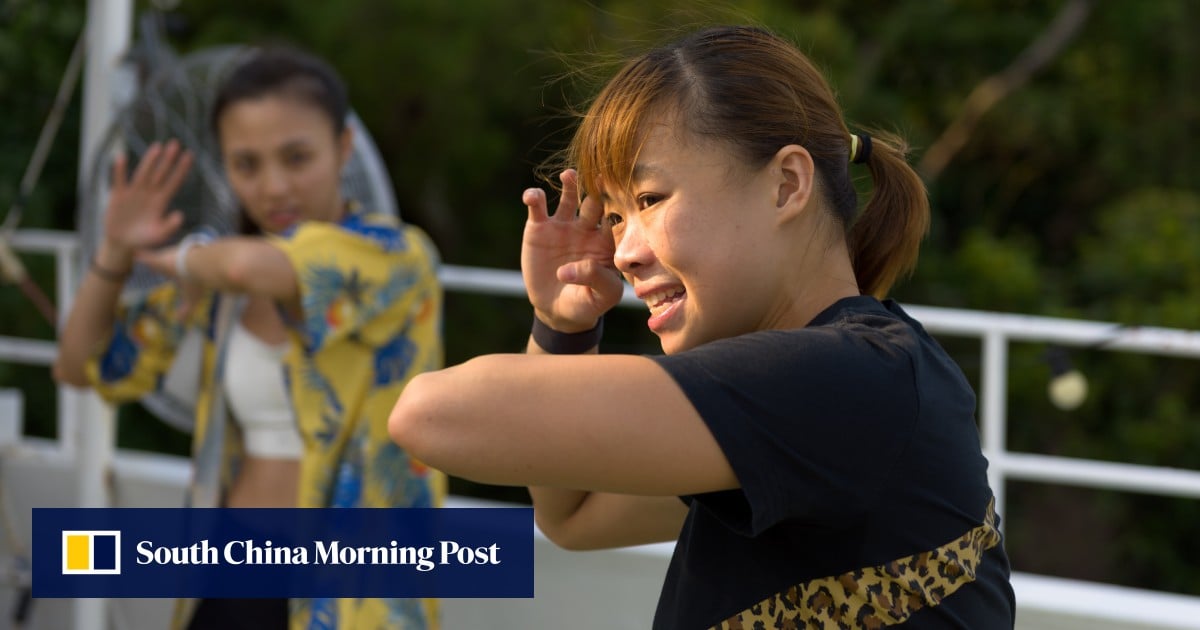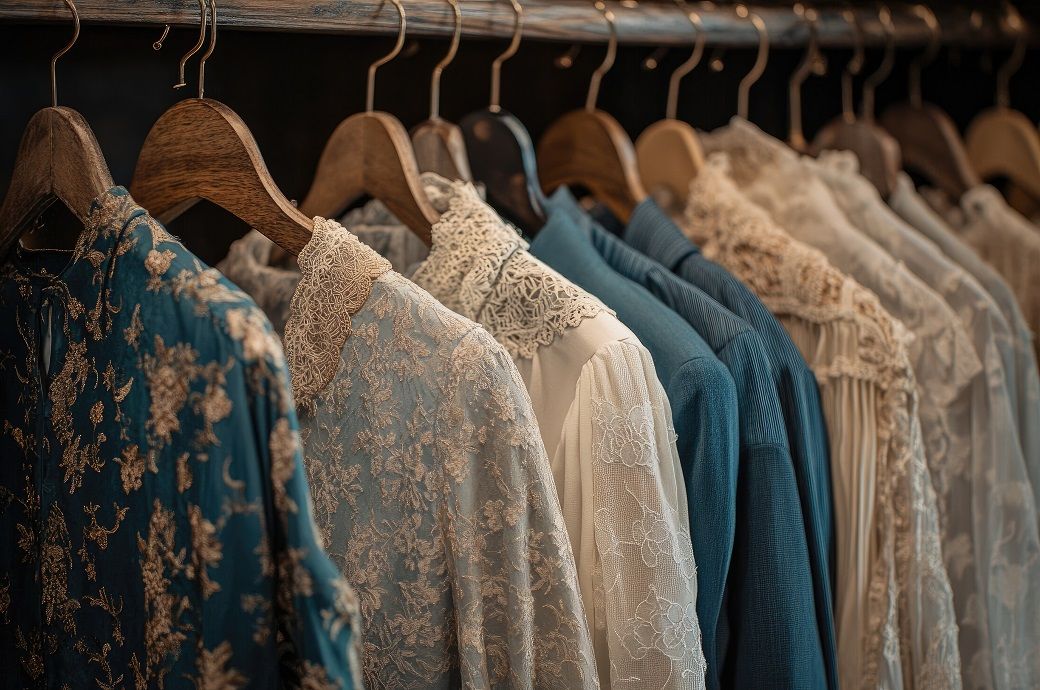Fitness
How This Trans Trainer Helps LGBTQ+ Clients Get Strong

This story is part of LGBTQ+ in Fitness, a series of articles that spotlights the trainers, athletes, and gym owners who are making the fitness industry more inclusive for their community. Read the rest of the stories here.
Landyn Pan, 29, is a fitness coach who specializes in helping clients in the LGBTQ+ community achieve their goals. Ahead, Landyn shares with Men’s Health, in their own words, how building strength helped them in their own journey as a transmasc person, and how the gym should be a place where anyone can find confidence, regardless of identity.
I CAME OUT as nonbinary when I was 15 years old. I’d always been an active kid growing up in Seattle, but as I got further into puberty and started identifying as nonbinary, I stopped. I didn’t want to play girls’ sports, but I didn’t want to play boys’ sports either—and I don’t think I would have been allowed to. So from the age of 15 onwards, I pretty much did no physical activity, and did my best to just ignore thinking about my body in general. In hindsight, I know that this was some type of dysphoria, but at the time I thought dysphoria meant actively hating your body, or you can’t handle parts of it, and I didn’t ever really feel like that. Now, I realize that spending my late teens completely disconnected from my body was a form of dysphoria.
At 19, in my freshman year of college, I started to medically transition—going on testosterone and getting top surgery. Top surgery was an easy decision for me, as I’d been binding my chest since I was 15. I feel extremely blessed to have been surrounded by people who were so loving and encouraging of who I was during those formative years, especially in college, where I was able to see other people my age going through their own gender journeys. I also remember around that time, when I was so excited about making all of these changes, I told a friend that I wanted to start building muscle. But it was another couple of years before I worked up the courage to walk into a gym.
Three years of medical transition does wonders for your confidence. It changed my voice, my face, the way I walk in the world. I felt so much more comfortable in my own skin. And all of that made me more open to exercising again. I’d been avoiding exercise for so long that I had begun to feel really unhealthy, despite being in the best place mentally that I had been for a long time.
When I began lifting weights at 22, it was all about building a certain appearance: putting on muscle, getting bigger, taking up space. And I ended up surprising myself. Within a few months, I started to see those results I wanted, but I also got really strong, and that then made me think about my nutrition and care more about what I was putting into my body. Previously, I’d been the kind of person who eats takeout every day, and I put a stop to that. I hadn’t expected to have so much fun, and for it to become something I would want to keep doing regularly.
I’d never felt particularly bad before, but once I started working out, something aligned, and I realized, this is gender euphoria. After years of trying to distance myself from my body, I was now able to express myself through it. So then I asked myself, what else can I do? I took up surfing in 2021. I never thought in a million years that I’d be comfortable wearing a skintight wetsuit, but I did it. Next I wanted to try white water rafting. I wanted to hike in really cool places. Fitness has just opened up the world for me and given me this really adventurous spirit; it’s made me more open to different experiences, pushed me out of my comfort zone. And on a practical level, it’s taught me so much: time management, setting goals, how to show up and prioritize myself and find that balance.
Fitness changed the direction of my life, and I wanted to give that gift to other people, so I decided to become a trainer, working specifically with LGBTQIA+ clients. I had a complicated relationship with my own body, and I realized that so does everybody else: we’ve all grown up in a culture that’s fatphobic and full of unhealthy messaging around dieting, and we’re forced to do exercise at school in a way that can put us off liking it in later life. And then for trans people, there can be gender dysphoria and body dysmorphia on top of that, and they need a fitness coach who understands where they’re coming from.
I try to not bring any preconceived notions to sessions with my clients because for the longest time that was what discouraged me from trying strength training in the first place. I went to college in Southern California where bodybuilding is huge. I’d see all these jacked frat boys, and I’d make all kinds of negative associations. I didn’t think I belonged with them, or that there was anything there for me. But that’s not entirely true. I had to do a lot of work to unlearn the idea that masculinity is inherently toxic before I could even enter that space. And once I was there, I didn’t feel any less masculine because I realized I already was.
Fitness can be a form of gender affirmation. I mean, obviously that looks different for everybody—some people want to alter their appearance, for others it’s about achieving an inner sense of peace—but whatever your goal, exercising can make you feel more at home in your body. It’s like learning to lift weights: you have to be very aware of where the weights are in relation to your body, your body’s positioning, where you’re feeling the activation. Over time, it becomes easier to read your own body, to check in with yourself. Am I in pain right now? Am I feeling anxious? For me, it’s helped me connect my mind to my body in so many ways; to feel aligned and totally myself.
It’s about so much more than just building muscle to look more masculine. What even is masculinity? Is it confidence? Assertiveness? You can be a woman and embody those traits too. And it goes beyond physical strength (again, femme bodybuilders exist). When I ask a group of trans people to define masculinity, nobody can really agree, because it means something different to everybody, and relates differently to their journey and their gender expression. I have nonbinary clients who want to get strong but embody that duality, and trans men who want to be more muscular so that they can feel more comfortable wearing more feminine clothes.
I’ve had some clients who were apprehensive about going into the gym for the first time because they seemed like such “bro-y” spaces. They’d say “I don’t want to be a total meathead,” then a few months down the line they would be totally about that beefcake life, making jokes about being a jock and a himbo (or sometimes a “theybo”). We all want to have a space where we can do that with each other, be around people who understand us…even if it’s just so we can share memes about being total gymrats.
It’s super important to build an inclusive fitness community for trans people, where we can talk about navigating our relationships with our bodies and show up for ourselves and for each other. Last year, I organized for a bunch of us to do a Tough Mudder together in Seattle, and this year we’re doing three more. Most of my clients wouldn’t be comfortable going to this kind of thing alone, especially as the crowd can be mostly men, but doing it together enabled them to feel safe while taking up space and cheering each other on.
That’s the main lesson I want to impart to my clients, because it’s the most important thing I’ve learned too: If there’s something you want to do, but you feel like you don’t belong, just remember that you do belong.
Want to read more stories on LGBTQ+ people who overcame obstacles, broke barriers, and found success in the fitness industry? Click the link below.












